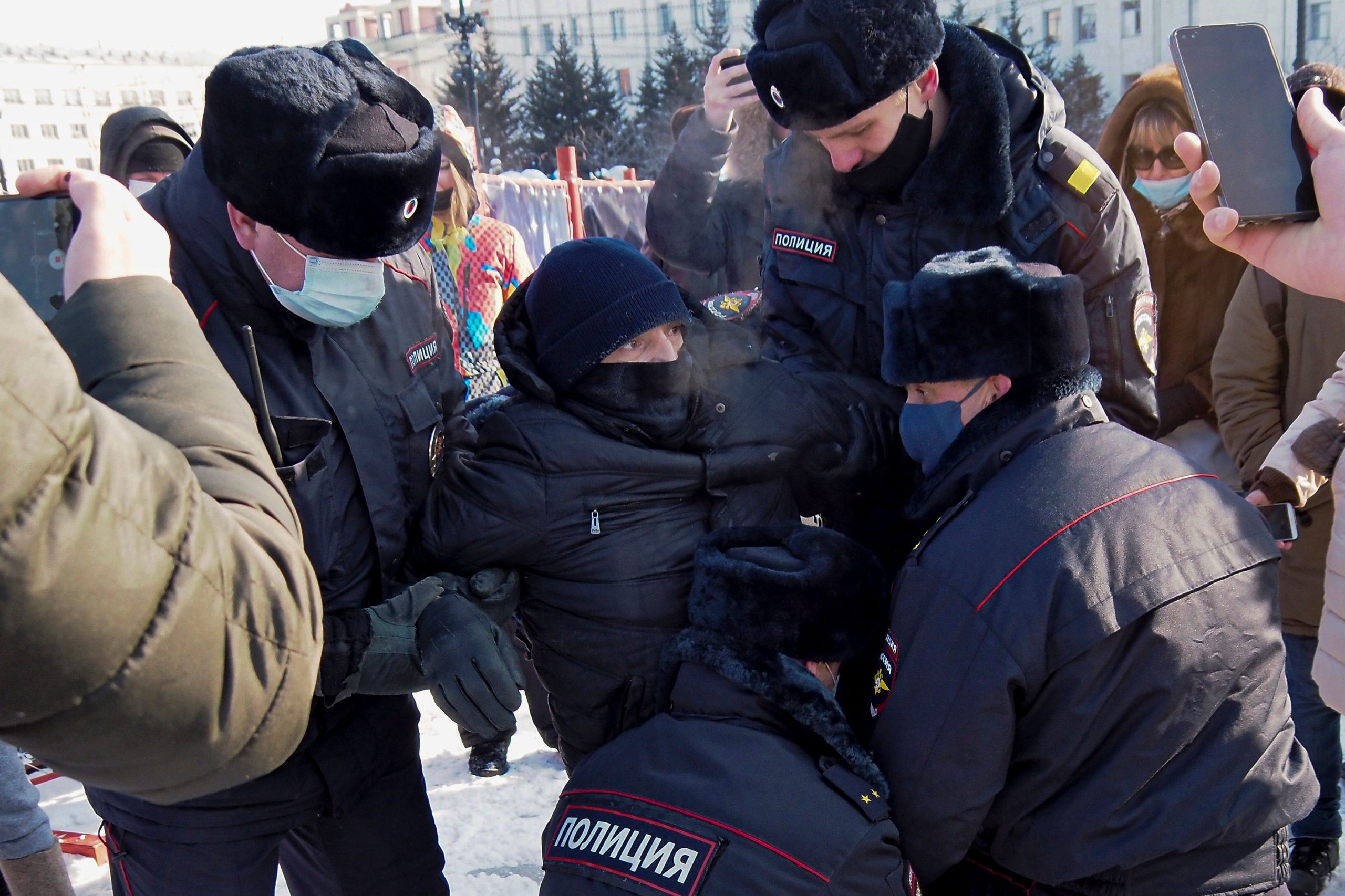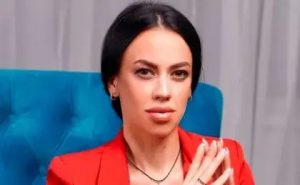As pressure keeps mounting on the Kremlin, Russia on Wednesday defended its crackdown on protesters demanding the release of the jailed opposition figure Alexei Navalny.
President Vladimir Putin’s most prominent critic was handed a prison term of two years and eight months on Tuesday for violating the terms of a 2014 suspended sentence on embezzlement charges he claims were a pretext to silence him.
The verdict spurred Navalny’s supporters onto the streets of Moscow on Tuesday night as riot police used batons to disperse the protesters.
More than 10,000 people were detained en masse at the rallies which led to an outcry in the West.
However, Putin’s spokesman Dmitry Peskov said on Wednesday that “the holding of unauthorised rallies raises concerns and justifies the tough actions of the police.”
ALSO READ | Russian ambassador called in by Czech Foreign Ministry over the imprisonment of Alexei Navalny
Demonstrators protested in more than 100 Russian cities last month after Navalny was detained in a Moscow airport on arrival from Germany where he had been recovering after being poisoned with the Novichok nerve agent in August.
The jailing of the 44-year-old sparked international outrage and led to new calls for fresh sanctions against Russia.
The Czech foreign ministry said on Wednesday it had summoned the Russian ambassador to Prague over the imprisonment of Navalny.
Czech Foreign Minister Tomas Petricek has slammed Navalny’s jailing as “a show trial”, calling on the EU to “return to the issue of sanctions”.
Navalny’s imprisonment has weakened Russia’s opposition movement now without its most prominent figure whose aides have also been seized by police.
In the first public comments since the sentencing, Navalny’s wife Yulia said that “good, strong” people support her and her husband so there was no need to “retreat or be afraid”.
“We will win anyway,” she wrote in an Instagram post.
Leonid Volkov, head of Navalny’s regional network, said that even after the verdict on Tuesday, “everything is just beginning”.
“We will increase pressure on Putin,” he said on Telegram. “New investigations will come out. New peaceful rallies and marches will be held.”
In its most recent investigation, Navalny’s team accused Putin of having received as a gift an opulent palace on the Black Sea coast in a video that garnered more than 108 million views on YouTube.
The report spurred tens of thousands of demonstrators onto the streets over consecutive weekends last month.
The OVD-Info group that monitors opposition protests said on Wednesday that more than 10,000 people had been seized by police at those rallies and the protests that followed the court hearing on Tuesday.
Russia’s Union of Journalists said that over 100 journalists were either injured or detained at rallies.
Later on Wednesday a Russian court sentenced Sergei Smirnov, chief editor of Mediazona, an online news publication often critical of the government, to 25 days in jail over a re-tweet.
Ahead of a January 23 protest in Navalny’s support, Smirnov, 45, re-tweeted a joke that included the time of the protest rally.
An analyst working for OVD-Info, Grigory Durnovo, told AFP that many of the detainees had been subjected to “difficult conditions” in custody and that authorities were purposefully carrying out “harsh detentions”.
He also noted that the group’s lawyers, who provide free legal aid to protesters, had been denied access to detention centres.
ALSO READ | The Sputnik V vaccine: a scientific and political win for Russia
The authorities “are openly demonstrating that a lawyer is perceived as an accomplice of the offender,” he said, AFP reported.
Echoing detainee testimonies, Durnovo said Moscow’s detention centres had reached full capacity due to the massive influx of Navalny supporters.
On Tuesday, the head of Russia’s Investigative Committee, which probes major crimes, ordered checks of detained men to see if they have avoided military service, which in Russia is compulsory for one year.
Navalny’s arrest and the violent police crackdown has been condemned by international rights groups and Western governments, including the United States, Britain and France.
Germany on Wednesday reiterated calls to free Navalny and said that more EU sanctions on Russia “cannot be ruled out”.
The UN Human Rights Office called for the release of protesters detained “for exercising their right to freedom of peaceful assembly and expression”.







